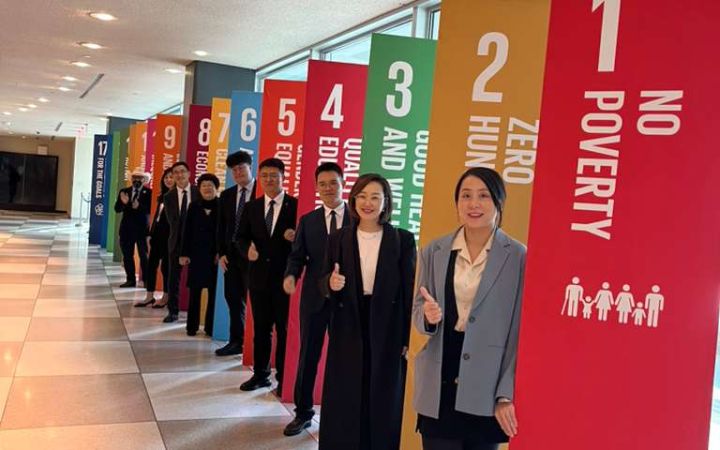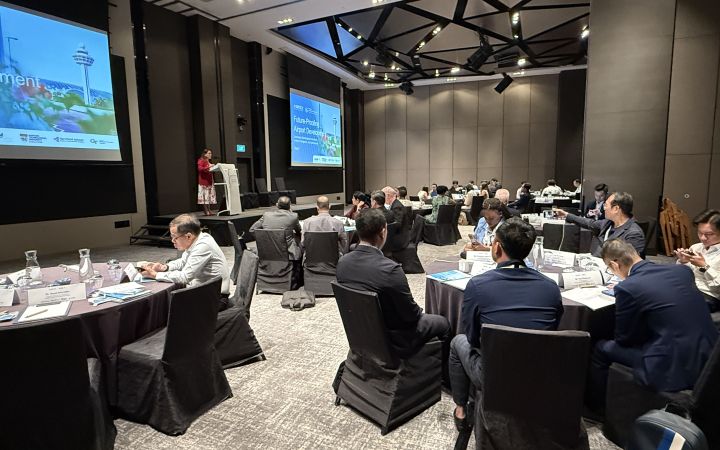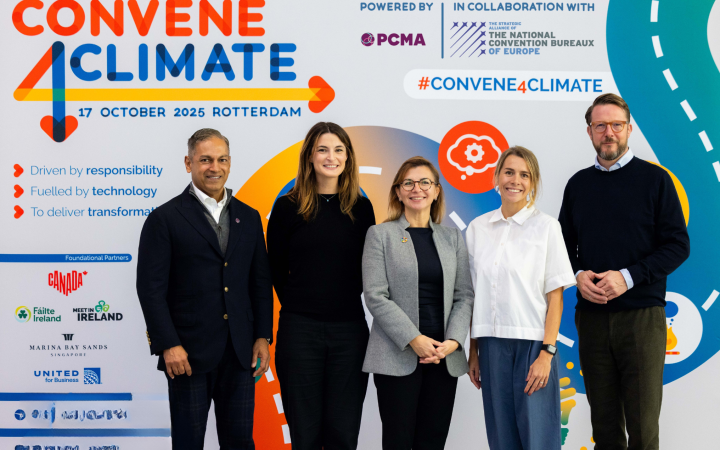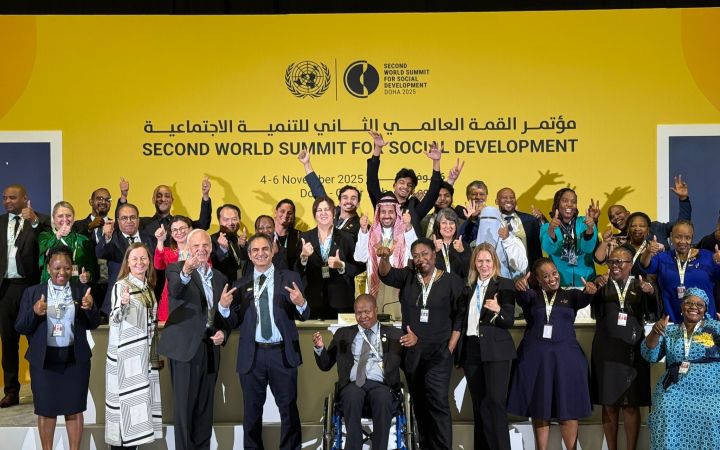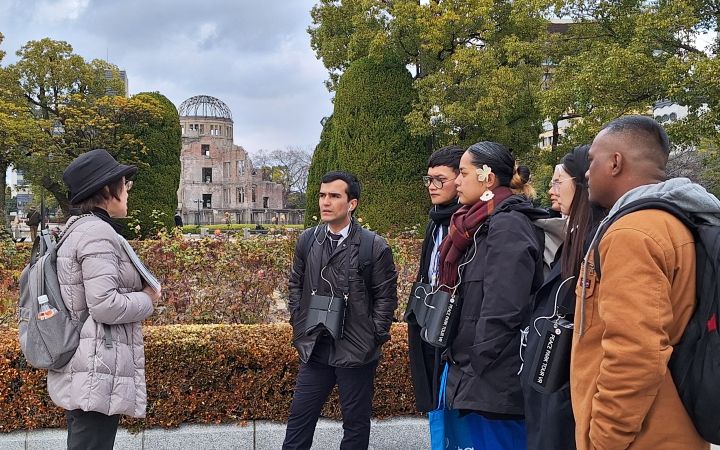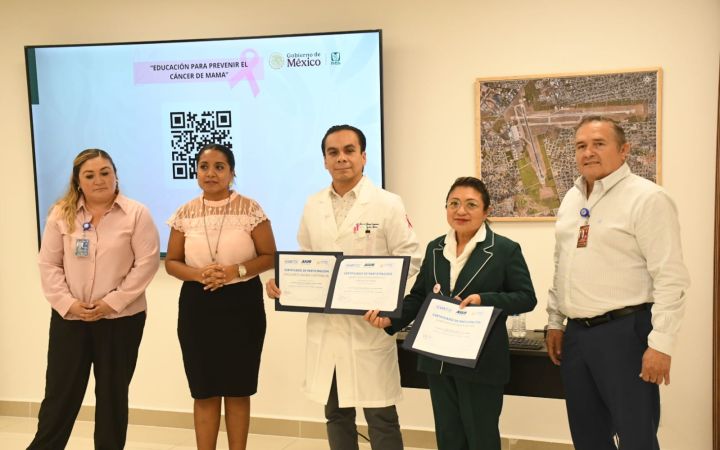Displaying 61 - 70 of 1559
27 October 2025, New York, USA – On 23–24 October 2025, the United Nations Institute for Training and Research (UNITAR) office in New York, in partnership with Harbour Education, convened the High-level School Leadership United Nations Visit and Exchange Programme at the United Nations Headquarters in New York.
Singapore, 27 October 2025 – The United Nations Institute for Training and Research (UNITAR) successfully concluded its fourth regional workshop of 2025 on "Future-Proofing Airport Development: Leveraging Technological Innovations for Enhanced Terminal Operations" in Singapore on 22-23 October 2025. The two-day programme brought together 65 airport professionals from across Asia-Pacific and Middle East to explore cutting-edge technologies transforming airport operations.
24 October 2025, Rotterdam, Netherlands - UNITAR’s Global Water Academy joined global changemakers on 17 October at Convene 4 Climate (C4C) 2025, an international summit advancing the transformation of the Business Events Industry (BEI) toward sustainability and regeneration.
24 October 2024, Geneva, Switzerland - On United Nations Day, observed every year on 24 October, the research and training institutes of the United Nations reaffirm their essential role in building an integrated, effective, and future-ready UN system that delivers for people. This day marks the anniversary of the entry into force of the UN Charter in 1945 — the founding moment of the Organization — and invites reflection on the UN’s enduring mission to promote peace, development, and human rights and how knowledge and learning support that mission.
In an effort to tackle the global crisis of road traffic collisions, the United Nations Institute for Training and Research (UNITAR) and the Fédération Internationale de l'Automobile (FIA) have officially launched the second phase of their worldwide initiative “Safe Mobility 4 All & 4 Life” (SM4A4L) for the Asia-Pacific region. This launch, which took place in Chiang Mai, Thailand, from 7 to 8 October 2025, marks a milestone in the determination to reduce preventable deaths and injuries on the region’s roads.
23 October 2025, Geneva, Switzerland – UNITAR, jointly with the Kingdom of Saudi Arabia, UNESCO, and Majmaah University, will host a Solutions Session at the Second World Summit for Social Development (WSSD) titled “Empowering Social Development through Higher Education Efforts: Scalable Leadership Solutions from LEAP‑FAST (Leaders in Higher Education Alliance and Programme - For Accelerating Sustainability Transformations).” The event will take place on 6 November 2025 from 15:00 to 16:15 Doha time in Room 3 of the Summit venue.
23 October 2025, Geneva, Switzerland – The United Nations Institute for Training and Research (UNITAR) is proud to announce the 2025 intake for the Dual Doctorate Programme and Dual Master’s Programme, both in Business Administration and AI Engineering. The programmes were launched in 2024 in collaboration with aSSIST University and SDG Management School. They offer a unique opportunity for professionals to advance their expertise and leadership in business and technology, equipping them with the skills necessary to thrive in an era of rapid digital and economic transformation. Prospective candidates may apply through the SDG Management School application portal.
22 October 2025, Bangkok, Thailand - The International Training Centre for Authorities and Leaders in Bangkok (CIFAL Bangkok), an affiliated training centre of the United Nations Institute for Training and Research (UNITAR), has announced the launch of a leadership training titled “Sustainable Leadership in Crisis”, to be held from 18 to 22 November 2025.
20 October 2025, Hiroshima, Japan – Teri Elbon serves as an Assistant Secretary at the Ministry of Foreign Affairs and Trade in the Marshall Islands, where she oversees multilateral affairs and coordinates the RMI’s participation in international engagements. In 2024, she joined the UNITAR Hiroshima Nuclear Disarmament and Non-Proliferation Training Programme to strengthen her capacity as a diplomat and ensure the Marshall Islands’ voice is heard in global efforts to advance nuclear disarmament and promote lasting peace.
17 October 2025, Merida, Mexico – As part of Breast Cancer Awareness Month, the International Training Centre for Authorities and Leaders in Merida (CIFAL Merida), an affiliated training centre of UNITAR, in coordination with the Mexican Social Security Institute (IMSS), hosted a workshop entitled “Education for the Early Detection of Breast Cancer”. The initiative aimed to encourage self-examination and promote timely health care among airport employees and service providers.


